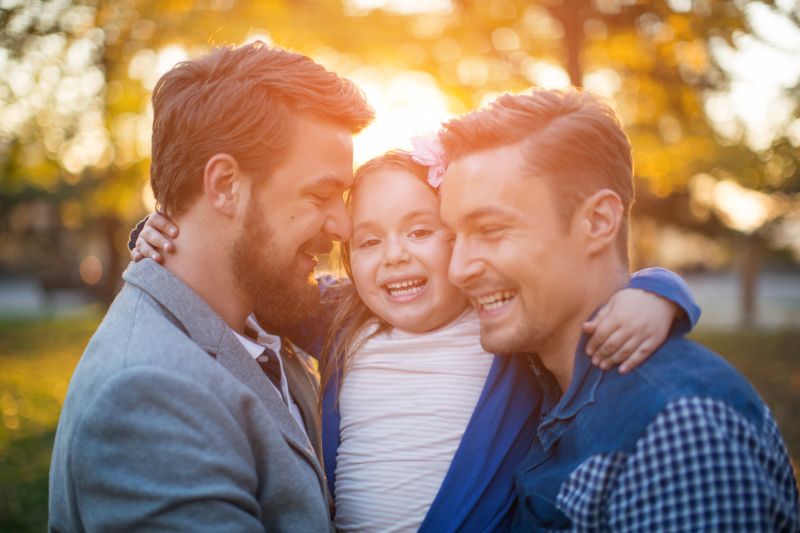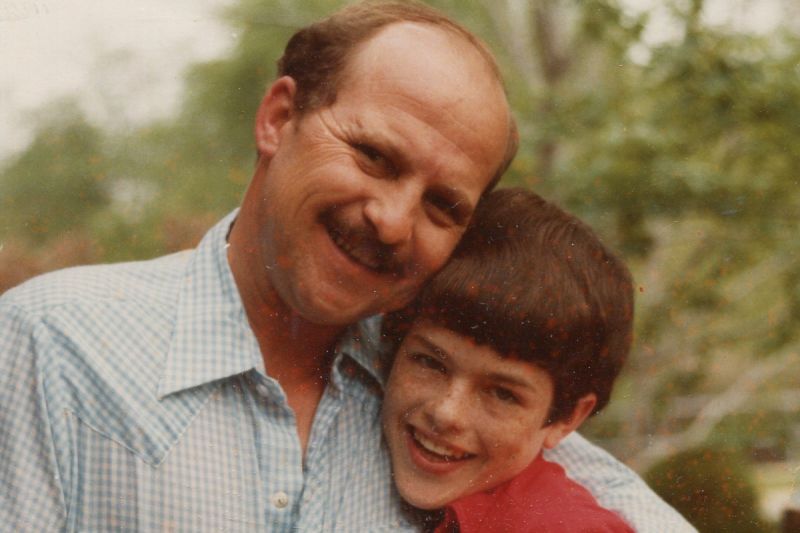The Differences Between Private and Foster Adoption
Foster Care vs. Adoption Through a Private Agency: What’s Right for You?

There’s more than one way to adopt, and each way can be beautiful.
Or call 1-800-ADOPTION to explore your path to private domestic adoption with one of our dedicated professionals.
In this article we will compare the two of the most common types of adoption within the United States:
For a comparison of international adoption you can click here.
What is the difference between private adoption and foster care adoption?
The differences are actually immense, and each path has its own advantages and disadvantages, depending on the adoptive parents’ goals. One is not necessarily better than the other. It all depends on your unique situation.
Even though American Adoptions only completes private domestic infant adoptions, we recognize that it isn’t the right path for everyone.
We want to help you find the type of adoption that is best suited for your life, especially if you are deciding between private adoption vs. foster-adopt.
If you are considering private domestic infant adoption, you can always contact our agency online to learn more about this process.
Prospective birth mothers can get answers to frequently asked questions about placing a baby for adoption here. You can also connect with one of our experienced adoption professionals to learn more about the benefits of choosing adoption by completing our online contact form.
In the meantime, here are some main factors that adoptive families should consider before pursuing adoption from foster care versus adoption from a private agency.
Private Adoption: An average of 12 months. State Adoption: Immediately to 5 years, depending on the situation The time you wait for an adoption opportunity is one of the primary differences between foster and private adoption. Some families who want to adopt sooner choose private adoption because wait times are typically shorter on average than in foster care adoption. This, however, is not always the case. As with any adoption, the unique nuances of your situation (including your openness to certain opportunities and circumstances) can increase or decrease your wait times. Whether you choose to first foster or adopt from foster care will determine how quickly your foster care adoption process goes. Families who adopt an older waiting child directly from foster care may experience a very fast process. In cases like this, the child’s biological parents have already had their rights terminated (or the rights are ready to be terminated), and the process can begin immediately. In contrast, some foster-to-adopt placements may take much longer. In many cases, a foster child will need to live in your home indefinitely as a biological parent works toward reunification. These parents are often given multiple opportunities to correct the problems for which their children were originally removed from their homes, which ultimately keeps children in the foster care system for months and sometimes years. It’s important to remember that the first priority of foster care is family preservation. About 75% of children in foster care will return to their biological parent’s custody and never become available for adoption. Parents who “foster to adopt” may receive several foster care placements over many years — without an adoption opportunity ever becoming available. Only after the reunification efforts have failed will the adoption proceedings begin — and, even then, your foster child may be placed with relatives rather than with you. This is the major difference in becoming foster parents vs. adoptive parents from the start. There are, however, some older children immediately ready for adoption through the state. Check your state’s social services department to learn more about these children.Private Adoption Versus Foster Care Adoption: Wait Times
Private Adoption: Moderate State Adoption: High There is some degree of uncertainty in either private adoption or foster care adoption, but the source of the uncertainty is different for each. In private domestic adoption, the prospective birth mother is in control of her adoption decision. She can legally change her mind and discontinue the process at any point until the baby is born and she legally signs her consent — even after choosing an adoptive family for her baby. American Adoptions has a success rate of nearly 85 percent of completed adoptions once an adoptive family and prospective birth mother agree to pursue the same adoption plan. All precautions are taken to avoid disrupted adoptions, but they can and sometimes do happen. So, these families will often feel some uncertainty because their futures are tied to a prospective birth mother’s final decision of completing her adoption plan. Fortunately, those adoptive parents who work with American Adoptions will be protected financially from loss, should a prospective birth mother change her mind. They will also receive support and counseling from their adoption specialist to help them move forward. Conversely, many foster care adoptions have a very high uncertainty rate because foster parents have little control in the proceedings of the adoption, as mentioned before. This is one of the differences between foster care and adoption that many people are interested in. For example, a couple or single person decides to become foster parents with the goal of adopting one of their foster children. They receive a foster child and bond with him, as if he is their child. A year later, the child’s biological parents comply with the state’s reunification plan and are granted custody of their child once again. The child will then likely go back home in a matter of days, leaving the foster parent(s) childless after a year of bonding. The foster parent(s) then must move on and repeat the process with another child. This is the main difference between adopting and fostering a child through the state system. Aspiring foster parents should do so because they want to help children and not necessarily because they want to adopt. This doesn’t mean they can’t be excited to one day permanently add one of these children to their families; it just means some situations may end in disappointment if adoption is the only goal of their foster parenting. This scenario happens frequently in the state adoption foster care system. Of the 247,631 children who exited foster care in 2017, more than 121,000 (49 percent) were reunified with their parents or placed with relatives, and just over 59,000 (24 percent) were placed for adoption.Private Adoption Versus Foster Care Adoption: Uncertainty
Private Infant Adoption: The Possibility of Disruption
Foster Care Adoption: The Possibility of Reunification
Private Adoption: Infant State Adoption: Less than 1 year old to 18 years old One major factor in deciding between foster care vs. adoption through a private agency is the age of the child you want to adopt. More than 99 percent of American Adoptions’ placements are of newborns and infants. So, if you’re deciding between infant domestic adoption vs. foster-adopt, working with an agency like ours is the best way to secure an infant placement. On the other hand, the majority of foster care adoptions are of older children. In 2017, the median age of a child in foster care was 7.7 years old, and the median age for children exiting foster care (for either reunification or adoption) was 6.6 years old. This means that adoptive parents hoping to adopt an infant through the state foster care system may have a long wait ahead of them. However, for adoptive parents who want to adopt an older child or don’t have specific ideas about the age of child they want to adopt, this is a non-issue.Private Adoption Versus Foster Care Adoption: Adoptee's Age
Private Adoption: Pregnant woman’s discretion State Adoption: Variable So, what’s the difference between private adoption and foster care adoption when it comes to biological parent involvement? It actually varies a lot. All adoptive families with American Adoptions are required to be open to an open adoption, which means that the adoptive family and birth mother exchange pictures, letters and contact information and may share other forms of contact, including pre- and post-placement visits. The majority of prospective birth mothers in private domestic adoption desire an open adoption, so these requirements ensure that families are shown to as many prospective birth mothers as possible, increasing the chance that families are chosen and decreasing the wait time. Prospective birth mothers’ preferences will be different, so adoptive families may also be matched with a prospective birth mother who desires a semi-open adoption, instead. Either way, it’s very common for a prospective birth mother to be in contact with the adoptive parents before and after the adoption process, and there are many benefits to this. This is one of the biggest differences in infant adoption vs. foster parent adoption. Families adopting through the state foster care system usually won’t have as much interaction with the adopted child’s birth parents, but this varies case by case. For example, those who pursue foster-to-adopt will often have contact with the biological parents while they attempt to reunify with their child; after these efforts have failed, adoptive parents may choose to continue contact with biological parents or other relatives, for the best interest of the child. Both methods of adoption allow the disclosure of the adopted child’s family medical history to the adoptive family, as long as it is known.Private Adoption Versus Foster Care Adoption: Biological Parent's Involvement
Private Adoption: Moderate State Adoption: Time, cost of home study (usually minimal) State adoption may cost very little, other than your time, while private adoption may cost a significant amount of money. (However, it is often less expensive than IVF or surrogacy.) Adoptive families must ask themselves which they value more. This can be a major point in deciding between adoption as a foster parent vs. adoption from a private agency. You should always do what will be best for your family in the long run. There are many processes, services and specialists that help complete a successful private adoption, and they each factor into the overall cost. Private adoption costs may include fees for matching and advertising services to help you find a great adoption match quickly, services from social workers and lawyers to complete adoption paperwork and mediate communication, and support for necessary birth mother expenses like hospital costs. Many of these same services required for private adoption are funded by government programs if you choose state adoption. Great adoption agencies will be clear and honest about what is included in their cost estimates and will protect you financially with non-expiring contracts and protection against adoption disruption. While it can seem like a lot at the start, there are many options for fundraising and financing that may offset the initial investment. State adoptions usually cost very little other than the home study fees, and sometimes the family is even paid a stipend. In some cases, a foster care adoption is completely free, thanks to the funding available from the federal adoption tax credit. For more information about how much adoption costs with our agency, please contact us online or call 1-800-ADOPTION.Private Adoption Versus Foster Care Adoption: Adoption Cost
---
Clearly, there is a lot for adoptive families to think about when deciding between domestic infant adoption vs. foster-to-adopt. If deciding on private adoption or foster-to-adopt is a struggle for you, you’re not alone — but you have some important decisions ahead of you.
American Adoptions encourages adoptive couples deciding between each type of adoption to research and find what is comfortable for them before making a final decision. While American Adoptions only works in private adoptions, we are happy to answer questions about our adoption program and process.
Get more information about private infant adoption now from our experienced professionals.
Disclaimer
Information available through these links is the sole property of the companies and organizations listed therein. American Adoptions provides this information as a courtesy and is in no way responsible for its content or accuracy.

